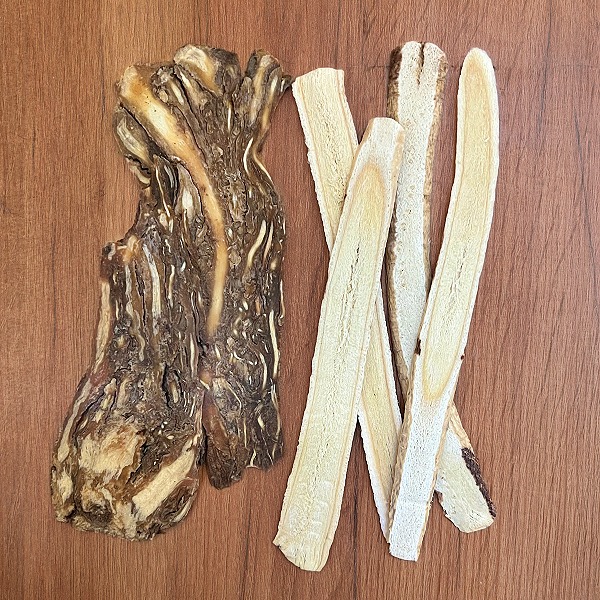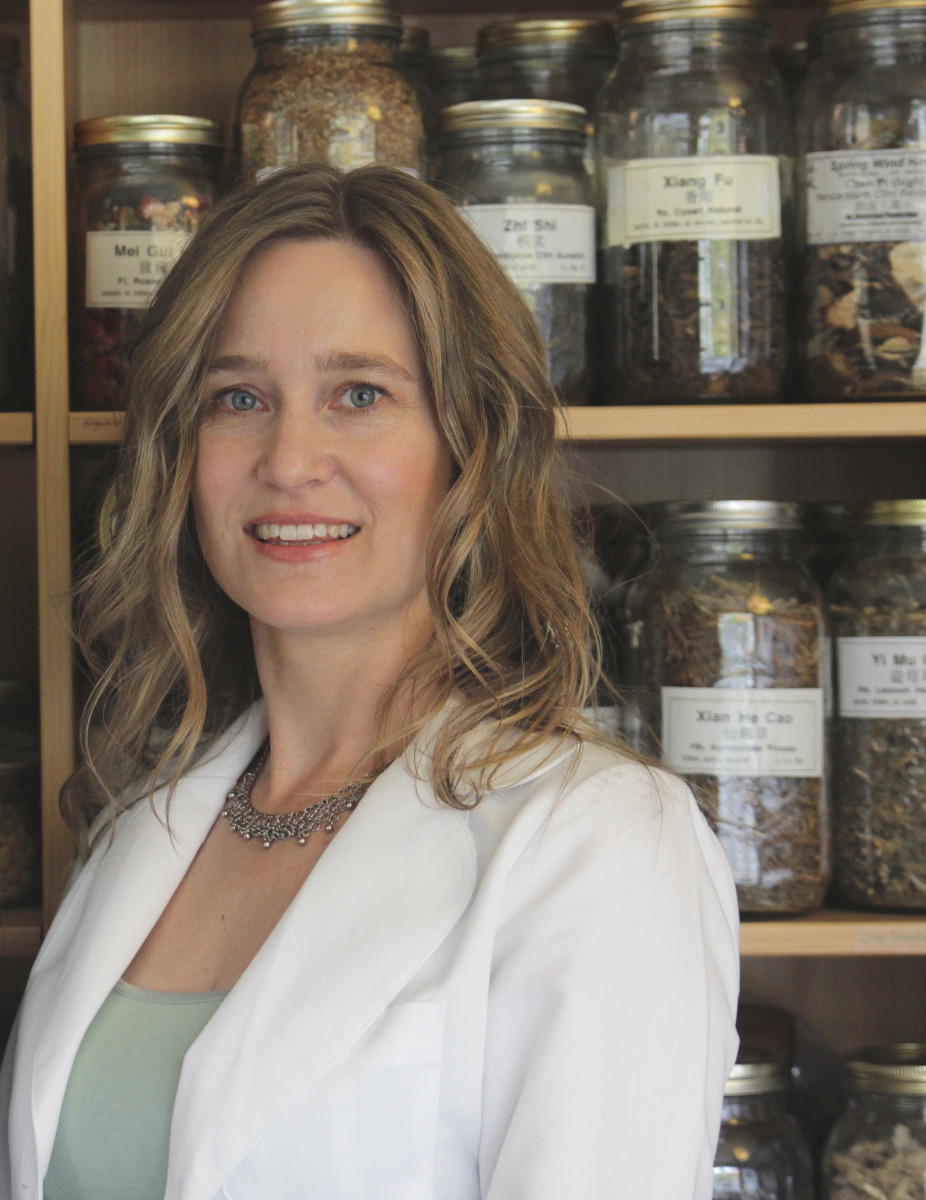Dui Yao: Dang gui + Huang qi & Dang Gui Bu Xue Tang
This article is also available as a podcast!

There are many ways to increase your knowledge of Chinese herbal medicine, one of which is to learn about paired relationships between single herbs, called Duì Yào. These pairings can be very helpful for understanding single herbs and learning formulas. Duì 对 means "two" and Yào 药 means "herbs." The concept can be translated as "pair medicine" where two herbs are used together to emphasize and harmonize one another, improving the medicinal effect.
There are 6 Types of Duì Yào Pairs:
- Combining herbs to enhance mutual compatibility. These are either:
- Two similar herbs from the same herbal category, which support each other.
- Two herbs from different herbal categories that complement each other.
- Combining herbs to enhance opposite but complementary actions. This includes:
- Hot/Cold
- Tonifying/Draining
- Opening/Gathering
- Fixed/Activating
- Upward/Downward
- Combining to Protect.
- Combining to Harmonize.
- Combining to Guide.
- Combining Flavors and Natures.
To begin, we’re going to take a look at the first category: combining herbs to enhance mutual compatibility. This is the most common type of Duì Yào herb pairing seen in Chinese medicine. Plants from the same herbal category tend to complement and enhance each other. We’ll specifically look at how this can be done to simultaneously supplement two of the body’s resources (Qi and Blood).

Dāng guī + Huáng qí
Dāng guī (Angelica sinensis) and Huáng qí (Astragalus membranaceus) are both tonic herbs and can work in tandem. One builds the Blood and one supplements the Qi. Used together, they enhance each other. Each one makes the other more powerful and precise. The body responds well to this pairing, because the Qi and Blood flow together. When combining these medicinals, we join Dāng guī in its wine-fried state with honey mix-fried “Zhì” Huáng qí to bring out the most tonifying aspects of each herb. The effect of Dāng guī on the Blood is threefold: it nourishes, quickens, and harmonizes the Blood. Huáng qí supplements the Spleen and boosts the Qi, to engender and transform the Blood. When these two herbs are combined, they supplement the Qi and the Blood simultaneously for cases that require both aspects.
Dāng Guī Bŭ Xuè Tāng
Dāng guī and Huáng qí are such great friends that over 700 years ago they even became an official two-herb formula called Dāng Guī Bŭ Xuè Tāng (Dāng guī Decoction to Tonify the Blood), created by Dr. Li Dongyuan (Li Gao) during the Jin Dynasty, first published in 1247 in his book Clarifying Doubts about Injury from Internal and External Causes.
Translated as “Angelica Tonify the Blood Decoction,” Dāng Guī Bŭ Xuè Tāng is a fantastic formula of just two herbs that treats the simultaneous issues of Qi and Blood deficiency. But it's not your ordinary type of Qi and Blood depletion. This potent formula is for more serious deficiencies. When you see clients that are this debilitated, they will often be driven to your office as they are so weak. That’s your first clue that they're doing poorly. They may have a fever and/or be completely exhausted. The cause of these deep deficiencies can be acute, chronic or a mixed picture.
Acute
Examples of such sudden overexertion can be from excess blood loss from extremely heavy menstruation, after having a baby or after running a marathon. Dāng Guī Bŭ Xuè Tāng is deeply restorative after a sudden overuse of the body. For example, heavy bleeding post-labor can cause the mother to lose not only blood, but also to deplete her Qi to the point of developing a fever. A weak, Qi-deficient patient might have symptoms of floating Yang (deficient Heat) like hot limbs, a reddish face, a slight fever or headache. Often, Western doctors try to treat it like an infection, but it’s actually a Qi deficient fever, not a bacterial based inflammation.
Chronic
In some cases, this deep Qi and Blood deficiency may have a chronic cause, such as long-term overwork that gradually consumes and depletes the Source Qi (Yuán Qì 元氣). In this case, the weak Source Qi is unable to generate Blood. This chronic depletion also leads to floating Yang in the form of Qi or Blood deficient heat. The patient may get a warm sensation in the muscles or a red face, analogous to a fever. This is all from deficiency and because of the ensuing deficient heat, the patient may have thirst (probably more for warm drinks) and they may be irritable. These are signs of Qi or Blood deficient Heat from floating Yang. Because there is not a craving for cold drinks, it is confirmed that true Heat is not the cause of the thirst.
Mixed Picture
Sometimes the patient is suffering from a combination of draining circumstances. A runner might have depleted his deeper energies from long term training. Then the sudden overexertion of the race taxes their resources, similar to delivering a baby after a nine-month pregnancy. The patient might get warm muscles or feel hot like a car overheating after being driven very fast on a long trip. In this case, the underlying cause of this great depletion could be both acute and chronic combined.
In all three situations, the Qi is so weak and deficient that it can't make new Blood to nourish the body. And the intense deficiency is coupled with either Qi or Blood deficient Heat.
Tongue and Pulse
In these Qi and Blood deficient cases the tongue is pale. The pulse is large and flooding, but underneath it's deficient. The flooding component is the floating Yang. The key is that it feels forceless when it's pressed hard, which shows the true state of the body.
A Word on Dosage
The key to using this formula is the dosing. It has a huge dose of Huáng qí and just a small dose of Dāng guī. The dose of Huáng qí ends up being five times that of Dāng guī, so you would use 30 grams of Huáng qí for just 6 grams of Dāng guī. That's what makes the formula work the way it does.
This strongly tonifies the Qi of the earth element, so that it can generate new Blood and help the healing process. It may be a simple formula with only two herbs, but it goes deep and really gets right to the source. If you don’t want to use the formula, but just want to use the Duì Yào herb pair, perhaps added to another formula, you can change the dosing of the individual herbs accordingly. And the dosage of Huáng qí can be reduced considerably if the formula is used to treat Blood deficiency without floating Yang.
In Summary
Dāng Guī Bŭ Xuè Tāng is a deceptively simple formula. It contains only two herbs, but yields huge results. Use this classic Duì Yào herbal pairing for the most serious cases to revive a patient who appears to be past the point of exhaustion. Sometimes the simplest, most elegant, formula works best.
Looking at specific Duì Yào herbal pairs that have become traditional formulas helps us to see what our ancient teachers were thinking and helps us grasp the intricacies of both single herbs and formulas.
Sources:
- Formulas & Strategies, compiled, translated by Dan Bensky & Randall Barolet
- Chinese Herbal Formulas and Applications, Chen, J. and T. Chen, 2009
- Duì Yào: The Art of Combining Chinese Medicinals, by Philippe Sionneau, Blue Poppy Press 1997


